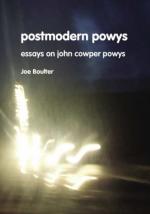|
This section contains 582 words (approx. 2 pages at 300 words per page) |

|
SOURCE: "Mystics and Rebels," in The New Republic, Vol. 104, No. 15, April 14, 1941, p. 509.
In the following excerpt, Moore extols Owen Glendower for its drama and "evocation of the past," but takes exception to its disproportionate size and style.
We all know Glendower through Shakespeare, who presents the Welsh hero as a strutting and irascible star-gazer: Owen was politically in the wrong camp and, besides, Shakespeare liked to kid the Welsh. John Cowper Powys' two-volume novel gives us a different Owen—mystic, with a power of letting his spirit float away from his body, but in the main a practical and brilliant leader of an oppressed minority. Owen could whip the armies of Henry IV so long as the Welsh kept fighting a nuisance war, but he could never establish a peaceful, independent Welsh nation. At the end, Mr. Powys gives him a dramatic and impressive death scene in the...
|
This section contains 582 words (approx. 2 pages at 300 words per page) |

|


